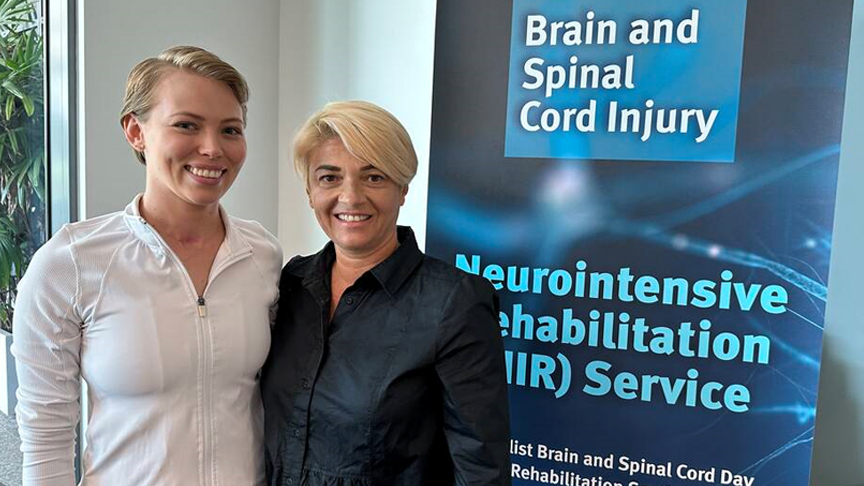
Rural patients recovering from brain injuries or neurological issues are now able to access evidence-based memory rehabilitation, through a remote program offered by Sunshine Coast Health.
The Sunshine Coast University Hospital’s Neuro-Intensive Rehabilitation Service has adopted the MemoRehab program, as a way to bring more effective rehabilitation to a wider number of patients.
“It’s difficult for people who live a long way from our unit to be able to access an intensive level of in-person therapy, so this really opens up this type of therapy for them,” Senior Occupational Therapist Suzana Ljubisavljevic said.
MemoRehab is a 6-week group-based online program, which involves video-call sessions and digital homework.
“Research shows improving memory can increase independence in day-to-day tasks, increasing patients' function and improving their relationships and wellbeing," she said.
"These factors all contribute to better quality of life, and we’ve seen that in the patients who have been on this program."
The program has already received positive feedback from patients.
“They’re just very happy to be able to interact with others going through similar journeys, and to get the information and opportunity to practise new strategies to help with their memory.”
People who are interested in using the program should reach out to their GP who can arrange a referral, or call Neuro-Intensive Rehabilitation at SCUH.
Amber Hill’s Story
In August last year, Amber Hill sustained a severe traumatic brain injury from a high speed motorcycle crash on a race track.
She had to learn how to walk and talk again.
As she lives four hours away from the Neuro-Intensive Rehabilitation team at Sunshine Coast University Hospital, she was referred to the MemoRehab program which she was able to complete remotely, from home.
“Since being home from hospital, I experienced the inability to make new memories or even recall old memories, remember what I need to do, when I need to do it and difficulties managing emotions, my perception and interaction with things.”
“MemoRehab has helped me to understand that and how my injury has affected me in aspects of my life, as well as give me methods that I can utilise to help myself to recover.”
She says she still experiences some challenges but overall has come a long way since her injury.
“I wish to thank the team of MemoRehab and the Brain and Spinal Cord Injury team for giving me a second chance at life, to gain back my independence.”